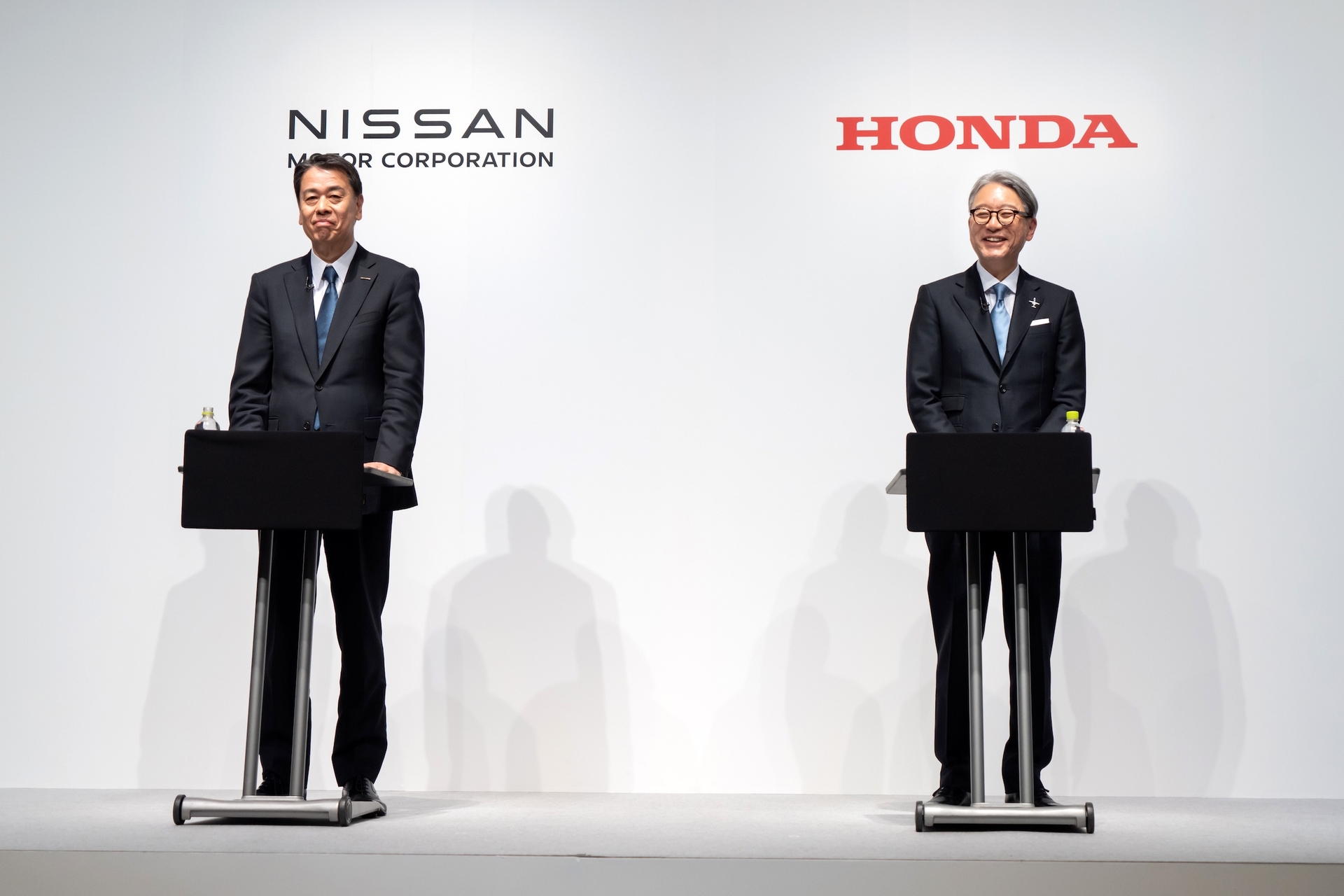
10 maddede Honda-Nissan birleşmesi
Bir süredir zor durumda olan Nissan'ın Honda ile birleşme haberlerini hepiniz duymuşsunuzdur. Aynı zor süreçten geçen Avrupalı otomotiv devleri arasındaki bu tür ortaklıklara artık alışır olduk (bkz: VAG-PSA-Fiat Grubu-Stellantis), ancak Japonlarda çok sık görmüyoruz.
İlk bakışta elektrikli/dijital dönüşüme ayak uydurmakta zorlanan iki başka markanın hayatta kalma çabası olarak okuyabileceğimiz bu duyurunun, gelin satır aralarını birlikte inceleyelim ve başarı şansını değerlendirelim.
2. Birleşme görüşmelerine ilişkin açıklamanın ardından Nissan hisseleri iki işlem gününde yüzde 30’dan fazla değer kazanırken, Honda hisseleri aynı dönemde yaklaşık yüzde 5 değer kaybetti. Aslında tek başına bu borsa hareketi bile bu birlikteliğin iki markaya nasıl iki farklı şekilde sirayet edeceğini belli ediyor.
3. Japon hükümeti ise otomotiv sektörünün Çin karşısındaki rekabet gücünden endişeli. Bu nedenle Ar-Ge çalışmalarını sübvanse eden hükümet, birleşmeyi memnuniyetle karşılayacağını belirtti. Ancak birazdan değineceğimiz üzere, Japonya'da devletin otomotiv sektörü üstündeki nüfuzu sübvansiyonların çok ötesinde ve bu imece usulü bir evlilik.
4. Nissan, aynı zamanda Mitsubishi Motors’un en büyük hissedarı ve teknolojik iş birliğini sürdürüyor; Mitsubishi'nin bu ittifaka katılmasına kesin gözüyle bakılıyor. Honda’nın piyasa değeri 6.74 trilyon yen'ken (34 milyar £), Nissan'ınki 1.67 trilyon yen, Mitsubishi'ninkiyse 717 milyar yen. Yani 2023'te 3,8 milyon araç satan Honda, 3 milyon araçla aslında ondan çok da geride kalmayan Nissan'ın tam dört katı değere sahip; iki şirket arasındaki verimlilik farkı çarpıcı. Mitsubishi'yse 2023'te 700.000 sattı.
5. Nissan, Fransız otomobil üreticisi Renault ile olan 25 yıllık ittifakının yanı sıra, 2018'in sonlarında dönemin yönetim kurulu başkanı Carlos Ghosn’un tutuklanmasının ardından hâlâ toparlanabilmiş değil (toplu işten çıkarmalar, fabrika kapanışları, satış düşüşleri). Gelirini düşük göstermekle suçlanan ve görevden alınan Ghosn, iddiaları reddederek bir yıl sonra özel bir jetin içinde bir kutuda saklanarak Japonya’dan kaçmıştı.
6. Nissan'ın başındayken aldığı karar ve faaliyetleriyle takdir toplayan, Renault'yla birleşerek grubu o dönem dünyanın en büyük otomotiv üreticisi haline getiren Carlos Ghosn, konu hakkında şu açıklamayı yaptı:
Honda birleşmeden memnun değil, Ekonomi Bakanlığı'nın (METI) dayatması bu. Nissan ile aralarında sinerji yaratmak imkansız çünkü birbirlerini tamamlamıyorlar; benzer pazarlarda benzer ürünler satan benzer markalar. İki şirkette de mühendislik baskın, egolar yüksek ve hangi teknoloji/çözümün en iyisi olduğu konusunda anlaşmaları çok zor.
7. Duyurudan bir hafta evvel, iPhone gibi Apple ürünlerinin de üreticisi olan Çinli elektronik şirketi Foxconn, Nissan'ı satın alma teklifinde bulunmuştu. Japon hükümeti biraz da bundan korktuğu için Honda'yı oyuna dahil edip Nissan'la birleştirdi. Yakında Çinli holdingler, sıfırdan EV markası yaratmak yerine, otomotiv sektöründeki bu gibi zayıf halkaları satın alarak yeniden yapılandırma yoluna gidebilirler. (bkz: Volvo, MG, Lotus)
8. Renault ve Nissan, yıllardır süren gerginliklerini geçen yıl bir anlaşmayla çözerek Nissan’ın yeniden bağımsızlığını kazanmasını sağladı. Renault, Nissan’daki hisselerini yaklaşık yüzde 43’ten yüzde 15’e düşürerek kademeli olarak azaltıyor. Fransızların çok geçmeden kalan payını da Honda'ya devretmesi bekleniyor.
9. Kerrigan Advisors’ın 600 otomobil bayisiyle yaptığı bir ankete göre, katılımcıların yarısından fazlası Nissan’a güven duymadığını belirtti. Şirketin kurucusu Erin Kerrigan, birçok Nissan bayisinin zarar ettiğini ve bayiliklerini satmak isteyenlerin kolayca alıcı bulamadığını ifade etti.
10. Elektrikli araçlar konusunda Nissan, öncülerden birinden geride kalan bir oyuncuya dönüştü. 2010 yılında piyasaya çıkan Nissan Leaf, tam elektrikli otomobiller arasında ilklerden biri olsa da beklenen satış başarısını yakalayamadı. Marka son yıllarda e-Power adını verdiği hibrit teknolojisine odaklanmayı seçti. Honda'ysa düşük menzili ve yüksek fiyatı sebebiyle alıcı bulmakta zorlanan e modelini yalnızca 3 senenin ardından üretimden kaldırdı. Güncel elektrikli SUV'u e:Ny1'se gene düşük satış rakamları ve şarj kontrol ünitesindeki yazılım hatasından ötürü geri çağırmalarla boğuşuyor.
Kaynaklar


7 Yorum